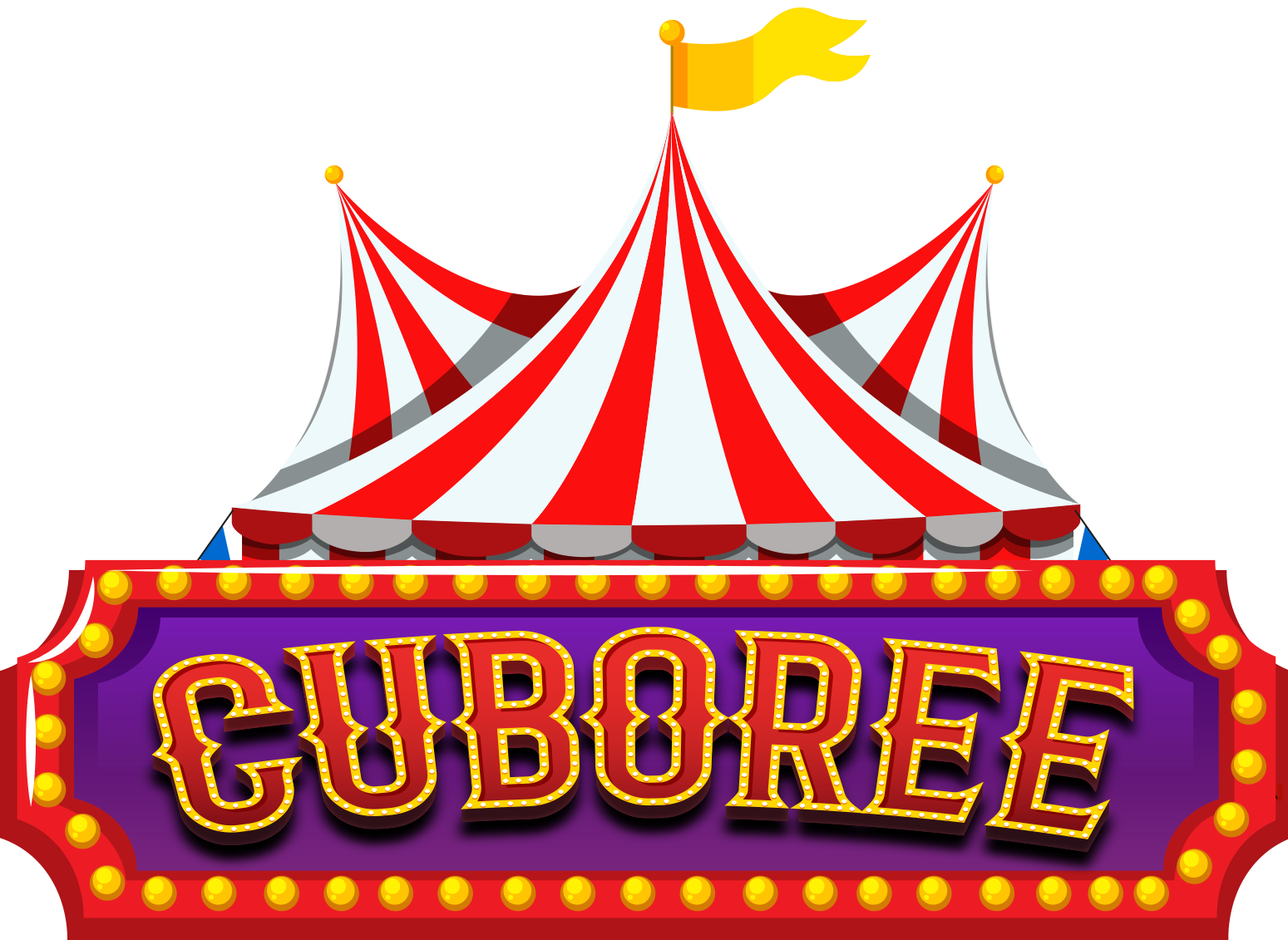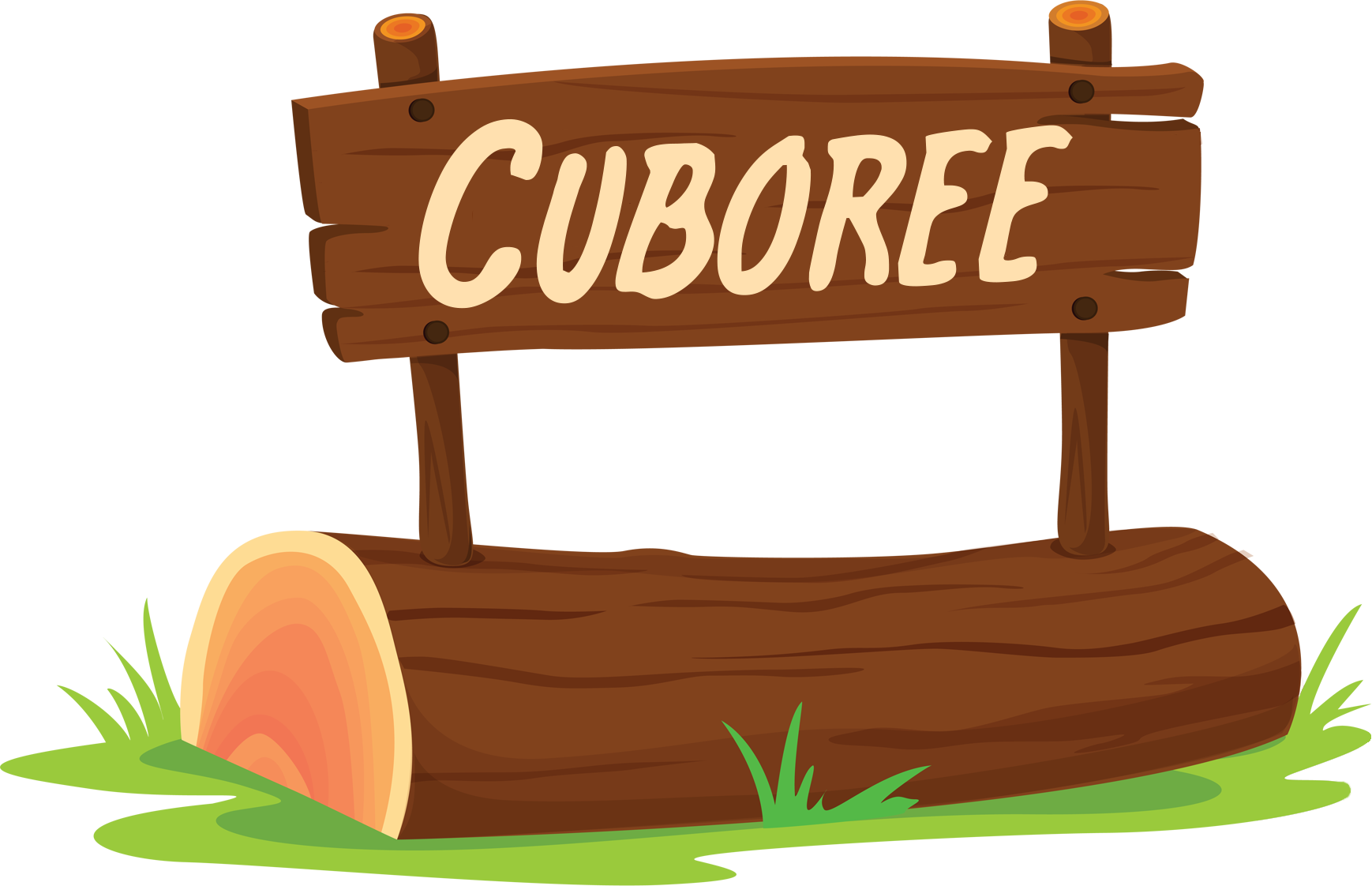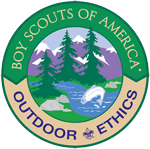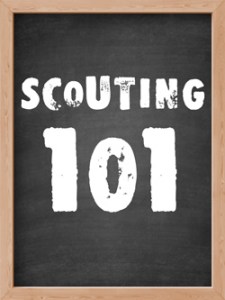 October 6-8, 2023
October 6-8, 2023
Long Acres Ranch
2335 Williams Way Blvd.
Richmond, TX 77469
 Test out your carnival game-playing skills in this weekend event for Cub Scouts (kindergarten through 5th grade) and their families to kick off the Scouting year. Lions, Tigers, Wolves, Bears, and Webelos Scouts and their families can camp with their pack for the weekend or just attend the Saturday activities.
Test out your carnival game-playing skills in this weekend event for Cub Scouts (kindergarten through 5th grade) and their families to kick off the Scouting year. Lions, Tigers, Wolves, Bears, and Webelos Scouts and their families can camp with their pack for the weekend or just attend the Saturday activities.
Packs will be assigned a campsite. After the opening flag ceremony on Saturday morning, the Cub Scouts will rotate as a pack through stations completing fun and wacky team-building activities as part of carnival games! Each pack will compete to earn points with awards being given at the campfire. Packs are encouraged to practice their favorite skit or song to perform at the campfire on Saturday evening.
Printable View
Registration
The event registration includes program supplies, camping fees, and a patch. There is no onsite registration. At checkout, pay with a credit card, or electronic check. Council refund
Register
Registration Fees
| Scouts (Kinder - 5th grade) |
$20 |
| Siblings |
$5 |
| Adults/parents/troops/staff |
$5 |
About Long Acres Ranch
Long Acres Ranch is a privately owned venue spanning 768 acres and 2.5 miles of undeveloped land along the Brazos River in Fort Bend County, Texas.
The physical address is 2335 Williams Way Blvd, Richmond, TX 77469
Map showing Long Acres Ranch Location in Richmond.
Route from Fulshear: To avoid going through town, travel down 723 from Fulshear to 59, turn left (north) on 59 and exit Williams Way Boulevard. Turn left on Williams Way Boulevard and go to the entrance of Long Acres Ranch.
Route from Katy: Go south on Grand Parkway to 59. Turn right (south) and travel to Williams Way Boulevard exit. Turn right on Williams Way Boulevard and go to the entrance of Long Acres Ranch.
What to Bring
Personal gear
- BSA Health and Medical form*
(Parts A & B for all Scouting events) for every participant
- Water bottle marked with name and unit #
- Closed-toes shoes (i.e., tennis shoes) good for running^
- Saturday-only participants bring sack lunch/dinner - check with pack leaders; eat breakfast before arriving.
- Hand sanitizer
Optional
- Snacks
- Sports drink powder packs for water bottles (not energy drinks)
- Backpack (day pack)
- Camp chair
- Rain gear, if needed
- Sunscreen
- Insect repellent (non-aerosol)
- Wagon
- Cell phone battery backup
- Fishing pole / gear
|
If camping with pack
- Eat dinner before arriving Friday night
- Tent and tarp/ground cloth for under the tent
- Bedroll or sleeping bag, cot, pillow
- Mess kit (plate, fork, knife, spoon, mesh bag)
- Cup or water bottle
- Flashlight with fresh batteries
- Appropriate clothing for the weather and extra change of clothes
- Field (Scout shirt) and activity (Scout t-shirt) uniform
- Jacket, raingear, hat
- Personal items (toiletries and medication)
- Optional items: marshmallows and sticks, Cub Scout Handbook, battery-operated lantern, wet wipes, glow sticks, football or soccer ball (to play in campsites during free time), camera
Packs / Webelos Dens
- Cooking gear
- Meals (Saturday morning, non-cooking lunch, dinner, non-cooking Sunday breakfast)
- Water containers (with lids) for hauling water for cooking
- First-aid kit (one per pack)
- Trash bags
- Den flag
- Firewood if there isn't a burn ban (fires cannot leave burn marks on the ground; consider a fire pit with a fire mat)
- Power strip
- 5-gallon buckets and shovel (to take home any unused firewood)
|
*Medical Record: All participants must bring an Annual Health and Medical Record. Completing the Annual Health and Medical Record is the first step in making sure you have a great Scouting experience. Completing a health history promotes health awareness, collects necessary data, and provides medical professionals critical information needed to treat a patient in the event of an illness or injury. It also provides emergency contact information. Please download the form and have the form with you at all Scouting events for every member of your family.
^Closed-toed shoes are highly recommended for all Scouting events. Many of our outdoor venues have snakes and sticks that can injure toes. Many activities include active games, so shoes that Scouts can run in (e.g., tennis shoes) are recommended.
Tentative Schedule
Friday
|
| 5:00 pm |
Camp opens |
| 6:00 pm |
Check-in opens (one rep per pack in the Safari Room) |
| 9:30 pm |
Check-in closes |
| 9:45 pm |
Cracker barrel (leader's meeting) |
| 10:30 pm |
Lights out |
Saturday
|
| 6:00 am |
Reveille |
| 7:00 am |
Check-in for Saturday arrivals |
| 9:00 am |
Opening flag ceremony and announcements at flagpole |
| 8:50 am |
Program Rotation begins |
| 12:00 pm |
Lunch |
| 1:30 pm |
Program Rotation resumes |
| 5:20 pm |
Rotations end |
| 5:40 pm |
Closing flag ceremony |
| 6:00 pm |
Dinner |
| 7:45 pm |
Campfire and awards |
| 9:00 pm |
Pack time |
| 10:30 pm |
Lights out |
Sunday
|
| 6:00 am |
Reveille |
| 7:30 am |
Interfaith service |
| 8:00 am |
Cleanup campsite and check-out |
| 10:30 am |
Camp closes |
Leader's Guide
After the opening flag ceremony on Saturday morning, the Cub Scouts will rotate as a pack through stations completing fun and wacky team-building activities as part of Big Top activities! Each pack will compete to earn points with awards being given at the campfire. Packs are encouraged to practice their favorite skit or song to perform at the campfire on Saturday evening.
Packs will be assigned a campsite to utilize as a gathering area.
Volunteers
We need volunteers to make this event a success. Each pack is asked to provide one adult per 25 Cub Scouts. A volunteer list will need to be provided at check in.
Parking
For safety reasons there will be NO vehicles allowed to park in camping area. Parking will be available in the parking lot assigned. Vehicles will be allowed to drive down to the main campsite and unload all gear. The vehicles then need to be moved to the parking area. After check-in on Friday night and Saturday morning no vehicles will be allowed in the camping area. Vehicles attached to trailers may remain by the camping area as space allows.
Check-in / Required Forms

- The designated unit leader will check in at headquarters area to check in their pack or troop. Check-in lines can be long, so please be patient.
- After check-in, you will be shown where to drive to the campsite and unload.
- After unloading move your vehicles to the parking area.
- All units attending the event should be fully checked in at headquarters by 9:00 pm Friday night.
- If no one from your unit is camping Friday night, Saturday check-in will be from 7:30 - 8:00 am.
- Please provide a list of volunteers at check in. We are asking for 1 volunteer per 25 Cub Scouts.
- **Please binder with the following mandatory paperwork in order, as noted below, and in alphabetical order by the registrant. Registration will inspect binder at check-in and then the binder is to be kept at your campsite. **
Leadership
 Two registered adult leaders 21 years of age or over are required for every pack at all times. There must be a registered female adult leader 21 years of age or over in every unit serving females. A registered female adult leader 21 years of age or over must be present for any activity involving female youth. Notwithstanding the minimum leader requirements, age- and program-appropriate supervision must always be provided.
Two registered adult leaders 21 years of age or over are required for every pack at all times. There must be a registered female adult leader 21 years of age or over in every unit serving females. A registered female adult leader 21 years of age or over must be present for any activity involving female youth. Notwithstanding the minimum leader requirements, age- and program-appropriate supervision must always be provided.
For Lions and Tigers (kindergarteners and 1st graders), an adult/guardian must accompany them at all times.
Every pack that attends must be under the supervision of its own adult leadership at all times. The pack leaders are in charge of the pack at all times and responsible for the discipline and organization of the pack. It is never the camp staff’s task to take over your role as leader of your unit. (Leadership Requirements; Youth Protection and Barriers to Abuse FAQs)
Cracker Barrel
A cracker barrel is an evening snack and time for fellowship with other Scouts or Scouters. The term cracker barrel is most thought to come from the time when people would shop at their local general store and gather around the cracker barrel to sit and visit with others in the community, much like the modern-day water cooler. The food is typically kept simple, such as cheese and crackers, summer sausage, chips and cookies. On campouts, many troops have a Friday night cracker barrel with the leaders and youth leadership to review the weekend schedule.
A cracker barrel will be held on Friday night. A representative from each unit is invited to a special cracker barrel where last-minute information and changes will be communicated. Please bring a cup and pen.
Check-Out
- The road to the campsites will not be open until AFTER the interfaith service.
- Packs will need to check-out at the flagpole.
- Site will be inspected before receiving departing patches and awards.
- Leave No Trace
- Campfire area must be covered back up. (LEAVE NO TRACE, not even discolored ground).
- Uniforms
- Because this is a Scouting activity, Scouts are encouraged to be in field uniform (Scout uniform) or activity uniform (pack t-shirts).
- Field uniform should be worn during opening and closing ceremony held at the flagpole and the interfaith service.
- Activity uniform should be worn during events
- Either field or activity uniform can be worn during the campfire.
- Remember a part of the ranking system is based on uniforms.
Utilities
- To make your camp a better experience, it is suggested that you set up a hand washing sanitation station near your cooking area. Make sure that every adult and Scout carry a full canteen of water. Also bring several Igloo coolers for water at your site. These can be filled at the hydrant site. There will be coolers at each station for the scouts to fill up their canteens.
- There is no electricity available on site.
- There are two water hydrants, one at each end of the campsite.
- Porta potties will be available at the campsites.
- No showers are available on site.
- IMPORTANT: No dishwashing will be allowed at the hydrants. Please use the three pot method in your campsite for washing dishes. The water should be carried from one of the two hydrants to your cooking site for cleanup. If dishes are washed at the hydrants, it will create a health hazard not to mention a muddy mess. Thank you for your cooperation.
Program
Big Top Activities
Field Activities
Field activities will be conducted all around the parade ground. Look for signage.
Midway
Scouts can try their luck at carnival-style games!
STEM
Scouts will explore different STEM-related activities.
Shooting Sports
There will be BB shooting and archery for 2nd - 5th graders and wrist rockets for kindergarteners and 1st graders. Shooting sports will be scheduled in morning and afternoon sessions per pack. Schedules will be made available at check-In.
Competition
The All-Around Cuboree Pack Award
This award will be given to the Cub Scout pack that participates fully throughout the cuboree.
What the event staff is looking for:
Participation in Events 200 points
Volunteers (1 per 25 scouts) 200 points
Campfire 100 points
Flag Competition 100 points
Campsite Inspection 100 points
Scout Spirit 100 points
800 possible points- Judges decisions are final.
Have fun and encourage Scouts to show their Scout spirit!
Pack Scoring Explanations
Participation in events
Pack registered by Friday 9 pm 50 points
Pack has leader at Cracker Barrel 50 points
Pack at Opening Flag Ceremony 50 points
Pack at Closing Flag Ceremony 50 points
Volunteers
Volunteers are needed to make this event a success. A pack is asked to provide one adult per 25 Cub Scouts. Points will be awarded proportionally with a max of 200 points. Volunteers need to be provided at check in.
Campfire
Pack will have at least one skit or song for campfire. Skit or song must be turned in by 5:30 pm. If skit or song has already being done, you will be asked to come up with another. Turn it in early!
Flag Competition
Each pack will be given flag cloth and a pole at registration. Flags will need to be at both flag ceremonies to receive max points. Flag will be judged on the following criteria.
- Pack Number
- Theme
- Creativity
- Scout Spirit
Campsite Inspection
Camps will be judged at lunchtime. An adult leader must be present to be judged.
| |
Points |
| General Appearance |
20 |
| Duty Roster Clearly Posted |
10 |
| Campfire Pit dug out (if using campfire) |
10 |
| Water buckets or fire extinguishers |
10 |
| First Aid Kit |
20 |
| Medical Forms |
10 |
| Trash can available and not overflowing |
10 |
| Cleaning Station (hand washing or dishes) |
10 |
Spirit
Overall pack spirit will be judged throughout the day. Songs, yells, and general Scout spirit.
All-Around Cuboree Den Award
This award will be given to the Cub Scout den that participates fully throughout cuboree.
| |
Points |
|
| Participation in all events |
60 |
|
| Scout skills |
100 |
|
| Song or Skit at Campfire |
50 |
|
| Den Flag |
50 |
|
| Scout Spirit and Sportsmanship |
100 |
|
| |
|
|
800 possible points- Judges decisions are final.
Den Scoring Explanation
Participation at Stations
- A den will receive 10 points per station they attend for a max of 60 points Scout Skill
- A den will display a scout skill at each station. Skill will range from Scout Oath,
- Scout Law, Den Yell, and knot tying. This will be tailored for Lion and Tiger dens. Song or Skit at Campfire
- A den will receive a max of 50 points for having a song or a skit for the campfire.
- Please note the due time for all skits and songs to be approved by Den Flag
- A den will receive 50 points for having a den flag at the opening and closing ceremonies.
- Scout Spirit and Sportsmanship
- A den can receive up to 100 points for demonstrating Scout Spirit and good Sportsmanship.
Interfaith Service
An interfaith service will be conducted for all participants on Sunday morning. An interfaith service is a brief worship or meditation, specifically designed for Scouting events where there may be members of more than one faith group. The intention of an interfaith service is to provide a spiritual focus during a camping experience that does not reflect the views of a particular denomination or faith. An interfaith service can be defined as a gathering of Scouts held to contribute to the development of their spirituality and to promote a fuller understanding of the Scout Oath and Law, with emphasis on one’s Duty to God.
Leave No Trace
 Instilling values in young people and preparing them to make moral and ethical choices throughout their lifetime is the mission of the Boy Scouts of America. Leave No Trace helps reinforce that mission, and reminds us to respect the rights of other users of the outdoors as well as future generations. Appreciation for our natural environment and a knowledge of the interrelationships of nature bolster our respect and reverence toward the environment and nature. Leave No Trace is an awareness and an attitude rather than a set of rules. It applies in your backyard or local park as much as in the backcountry. We should all practice Leave No Trace in our thinking and actions–wherever we go.
Instilling values in young people and preparing them to make moral and ethical choices throughout their lifetime is the mission of the Boy Scouts of America. Leave No Trace helps reinforce that mission, and reminds us to respect the rights of other users of the outdoors as well as future generations. Appreciation for our natural environment and a knowledge of the interrelationships of nature bolster our respect and reverence toward the environment and nature. Leave No Trace is an awareness and an attitude rather than a set of rules. It applies in your backyard or local park as much as in the backcountry. We should all practice Leave No Trace in our thinking and actions–wherever we go.
The principles of Leave No Trace might seem unimportant until you consider the combined effects of millions of outdoor visitors. One poorly located campsite or campfire may have little significance, but thousands of such instances seriously degrade the outdoor experience for all. Leaving no trace is everyone’s responsibility. All participants are asked to follow the seven principles of Leave No Trace.
- Plan Ahead and Prepare
- Travel and Camp on Durable Surfaces
- Dispose of Waste Properly (Pack It In, Pack It Out)
- Leave What You Find
- Minimize Campfire Impacts
- Respect Wildlife
- Be Considerate of Other Visitors
Camp Policies
All council camp policies and BSA's Guide to Safe Scouting policies must be followed and all Scouting activities be conducted in a safe and prudent manner including the Age-Appropriate Guidelines for Scouting Activities.
Tenting
In Cub Scouts, parents and guardians may share a tent with their families. There are to be no exceptions. Spouses may share tents. (Source)
Camp Visitors
Visitors must check-in at the camp office to sign in. Visitors are subject to all youth protection guidelines above.
Buddy System
 All Scouts should be instructed on the proper use of the Buddy System prior to arrival. All Scouts are to adhere to the buddy system throughout the weekend. Scouting’s buddy system calls for Scouts to pair up with a friend or two for all activities. This helps ensure safety and accountability and teaches Scouts to have responsibility for others. No Scout should ever be found wandering through camp alone. Leaders are encouraged to pair Scouts. Any Scout found to not be using the Buddy System will be stopped and the unit leader will be contacted. The Scout will not be allowed to continue until a buddy is available.
All Scouts should be instructed on the proper use of the Buddy System prior to arrival. All Scouts are to adhere to the buddy system throughout the weekend. Scouting’s buddy system calls for Scouts to pair up with a friend or two for all activities. This helps ensure safety and accountability and teaches Scouts to have responsibility for others. No Scout should ever be found wandering through camp alone. Leaders are encouraged to pair Scouts. Any Scout found to not be using the Buddy System will be stopped and the unit leader will be contacted. The Scout will not be allowed to continue until a buddy is available.
Vehicles and Parking
- The health, safety, and well-being of our members, volunteers, and parents is paramount. The number one cause of fatalities, injuries, and insurance claims throughout the BSA involves vehicles in camps. Rules and policies are in place to reduce potential hazards and events and to help ensure everyone has an enjoyable time. Please review the policies below so that you are aware and do your part to reduce hazards and ensure the safety of yourself and others.
- Seatbelts must be worn at all times.
- No vehicles allowed to park in camping area. Parking will be available in the parking lot assigned. Vehicles will be allowed to drive down to the main campsite and unload all gear. The vehicles the need to be moved to the parking area. After check-in on Friday and Saturday morning no vehicles will be allowed in the camping area, (except those attached to trailers).
- It is against BSA policy for ANYONE to ride in the back of a pickup truck or in a trailer. There is to be no transporting of people in the back of pickups or in trailers.
- Use of electronic devices while driving within the camp is prohibited. While driving on camp roads care must be taken to avoid pedestrians.
- No RVs, ATVs are allowed. Bicycles may be ridden around camp on roadways and gravel paths. Do not ride on sidewalks. Helmets must be worn at all times by youth and adults riding bicycles around camp.
Tobacco Products
Smoking is not allowed around the Scouts. Per the Guide to Safe Scouting, smoking or vaping by youth at any Scouting event shall not be tolerated.
"An important way adult leaders can model healthy living is by following the policies on alcohol, tobacco, and drugs. Leaders should support the attitude that they, as well as youths, are better off without tobacco in any form and may not allow the use of tobacco products at any BSA activity involving youth participants. This includes the use of electronic cigarettes, personal vaporizers, or electronic nicotine delivery systems that simulate tobacco smoking. All Scouting functions, meetings, and activities should be conducted on a smoke-free basis, with smoking areas located away from all participants. As outlined in the Scouter Code of Conduct, Scouting activities are not a place to possess, distribute, transport, consume, or use any of the following items prohibited by law or in violation of any Scouting rules, regulations, and policies: alcoholic beverages or controlled substances, including marijuana. In addition, the Code of Conduct specifies that if you are taking prescription medications with the potential of impairing any functioning or judgment, you will not engage in activities that would put Scouts at risk, including driving or operating equipment."
Smoking by adults is not permitted in any tent, pavilion or building. Smoking is also not permitted in the dining hall at any time. While we highly discourage smoking while in camp, adults who choose to do so in the designated areas and must not smoke within sight of any youth. Moreover, in the event of a burn ban, smoking may be prohibited on the property. Please check with the camp director to determine whether such a burn ban is in place.
For the purposes of this Cuboree, the camp director has defined the designated smoking area as the person’s own vehicle with the windows rolled up. Further, this vehicle must be parked at the Administration / Dining Hall parking lot. There are to be no exceptions and anyone found to be violating the camp smoking policy will be asked to leave.
Alcohol / Controlled Substances
In accordance with the national policy of the Boy Scouts of America, alcohol and illegal drugs are not permitted on camp property. Discover of these items will result in immediate dismissal from the property. Moreover, anyone found to be in possession of any illegal substance on camp property has committed a trespass and is subject to arrest.
Firearms
Pursuant to Section 30.06, Penal Code (trespass by a license holder with a concealed handgun), a person licensed under Subchapter H, Chapter 411, Government Code (handgun licensing law), may not enter camp property with a concealed handgun.
Pursuant to Section 30.07, Penal Code (trespass by license holder with an openly carried handgun), a person licensed under Subchapter H, Chapter 411, Government Code (handgun licensing law), may not enter camp property with a handgun that is carried openly.
NO PERSONAL Firearms and ammunition are allowed on camp property. All program supplies needed are available at the camp for use in the Shooting Sports area. Personal bows, shotguns, and other firearms are not allowed on camp property.
Campfires
Wood-fueled campfires can be built in the campsites, however, there are no campfire rings provided. Dug out pits or elevated fire pits shall be used for campfires. No other ground fires should be built. Fires must be attended to at all times by an adult and are to be extinguished before departing the campsite for events or evening activities. Units will need to bring their own firewood. There is no firewood available at the camp. All firewood brought to camp must also leave with you, including partially burnt firewood.
Do not create large bonfires. Keep fires contained and flames less than two feet above the ground. Depending on the weather, a fire ban may be active during the camping weekend. Fire bans are issued by the County Fire Marshal and the camp staff cannot override that decision. If a fire ban is in force during the weekend, no open fires will be allowed. All campfire pits are to be cleaned out before departing on Sunday. Cover ashes with dirt. Remember to Leave No Trace.
Each campsite will have a 5-gallon fire bucket to be filled with water and kept by the fire at all times. This is mandatory.
Lanterns and Stoves
Propane-fueled lanterns and stoves may be used under adult supervision. Liquid-fueled equipment using fuels such as Coleman fuel, kerosene, or white gas are specifically prohibited. There should never be any open flames in a tent. Tent light should be provided where necessary by flashlight or battery-powered lanterns.
Insects and Poisonous Plants
As always, be prepared to defend yourselves against mosquitoes, chiggers, and ticks. Be prepared to treat fire ant bites and poison ivy.
Weather
All dens must be fully prepared for the weather conditions typical for this time of the year. It will rain, shine, be sunny, and cold all in the same weekend. Please bring enough clothing to be as comfortable as possible.
Thunderstorms or Tornadoes
When threatening weather occurs, all persons in campsites should go to the nearest restroom building or their vehicles (lighting only). All persons in a program area should move to the nearest building or structure.
Emergency Procedures
Medical
Minor medical attention: All units should have in their camp a first aid kit to address minor medical needs. In the event medical attention is required beyond basic
Scout/leader rendered First Aid, said individual should be transported by their parent/guardian or other (2-deep) adult leadership to a local health care facility. Any individual leaving camp to seek outside medical attention needs to report to the Flagpole before departing or have another adult leader from the unit report to the event. The nearest 24-hour Care facility is in Richmond:
OakBend Medical Center
1705 Jackson Street
Richmond, TX 77469
(281) 341-3000
For major emergencies: CALL 911, then call the camp director.
Incident Reporting
Any incident that requires the intervention of medical personnel, involves emergency responders or results in a response beyond Scout-rendered first aid must be reported. Near-miss incidents (does not result in injury, illness, or damage by definition, but it had the potential to do so) should also be reported.
Fire
Ensure that all people are evacuated from the fire area and in a safe area. Sound alarm by yelling “FIRE” and notify Camp Management immediately. Local fire authorities will be called to fight the fire.
- Because of the age of the Scouts, it is not recommended that any fire-fighting action take place. Remove yourself and others from harm’s way and notify Camp staff.
- Move Cub Scouts and family members to a safe location away from fire danger, usually in the parking lot in front of the campsite. Ensure that all members of your unit are accounted for and that they remain together and calm.
- In an emergency, the central alarm will be sounded (siren blown continuously for 3 minutes) to warn camp. Camp staff personnel will be dispatched to campsites to give further instructions.
- Be prepared to mobilize to a safe location.
- 3 short blasts of the siren will signal the all-clear. Announcements will also communicate the all-clear.
Photographs
Notice! Please be advised that promotional videotaping/photography may be in progress at any time at an event. Your entrance constitutes your agreement that the council and district has the right to reproduce your likeness in videography/photography for promotion (e.g., publications, internet, newspaper).
Communications
 Join our council Facebook page at www.facebook.com/shac.bsa.
Join our council Facebook page at www.facebook.com/shac.bsa.
Scouting Safely
 The BSA's Commitment to Safety is ongoing and we want you to know that the safety of our youth, volunteers, staff, and employees cannot be compromised. The Boy Scouts of America puts the utmost importance on the safe and healthy environments for its youth membership. The Sam Houston Area Council takes great strides to ensure the safety of its youth as well as the adult volunteer leadership that interacts with them.
The BSA's Commitment to Safety is ongoing and we want you to know that the safety of our youth, volunteers, staff, and employees cannot be compromised. The Boy Scouts of America puts the utmost importance on the safe and healthy environments for its youth membership. The Sam Houston Area Council takes great strides to ensure the safety of its youth as well as the adult volunteer leadership that interacts with them.
BSA Guide to Safe Scouting policies must be followed. All participants must follow Youth Protection Guidelines at all Scouting events. Highlights include:
- Two-deep leadership on all outings required.
- One-on-one contact between adults and youth members is prohibited.
- The buddy system should be used at all times.
- Discipline must be constructive.
Health and safety must be integrated into everything we do, to the point that no injuries are acceptable beyond those that are readily treatable by Scout-rendered first aid. As an aid in the continuing effort to protect participants in a Scout activity, the BSA National Health and Safety Committee and the Council Services Division of the BSA National Council have developed the "Sweet Sixteen" of BSA safety procedures for physical activity. These 16 points, which embody good judgment and common sense, are applicable to all activities.
Youth Protection Guidelines Guide to Safe Scouting Sweet Sixteen Enterprise Risk Management
Contact
For more information, please contact the camporee chair or district activities chair.